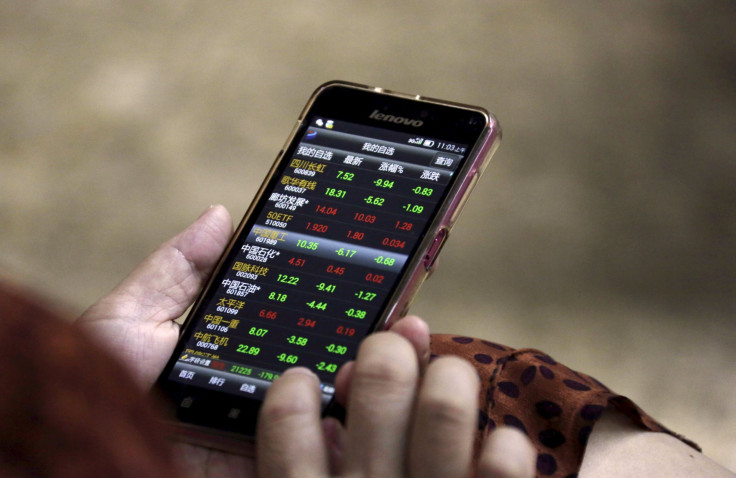Asian Stocks Continue Rebound On Positive US Data, Chinese Pension Fund Investment

SHANGHAI -- Positive news from the U.S. economy, and a sense of greater government support for China’s markets, saw Asian shares continue to make up some of their losses from earlier in the week, with only Hong Kong bucking the trend.
Reports that China’s state pension funds could invest over $300 billion in the markets encouraged further rises on China’s bourses. After its 5.3 percent rebound Thursday, following a week of dramatic losses, the main Shanghai Composite Index closed up 4.8 percent at 3,232, after posting strong late gains. Share values were still down some 7 percent on the week, following their 16 percent plunge from "Black Monday" to Tuesday -- but analysts said the sense of crisis that had engulfed the market has been averted, at least for the time being. The secondary index in Shenzhen also continued its rebound, closing 5.4 percent higher, while the ChiNext index for high-tech companies, which had dropped fastest, finished more than 6.2 percent up on the day, at 2,082.
The gains came after Vice Minister of Human Resources and Social Security You Jun said the country's local pension funds could start investing up to 30 percent of their assets -- some two trillion yuan or around $313 billion -- in the stock market "as soon as possible."
Also on Friday, the People’s Bank of China injected 60 billion yuan ($9.39 billion) into the country’s banking system to help ease short-term liquidity needs, according to Reuters. This marks the second time this week that the central bank has issued such loans to reduce fluctuations in liquidity and stabilize funding costs between banks. The bank had, on Wednesday, announced a cash injection of 140 billion yuan ($21.8 billion) into the interbank money market.
A second day of gains on the Dow and other Western markets, along with stronger than expected U.S. growth figures, also contributed to a rise in other Asian markets, which had already been boosted by suggestions that the U.S. was not likely to raise interest rates next month. In Japan the Nikkei continued to rise, finishing the day just over 3 percent higher -- though leaving it 1.5 percent down on the week. The rise in price of oil and other commodities boosted stocks of steel companies and those in the energy sector, though analysts said short-selling remained high, suggesting some anxiety remained.
Australia’s ASX 200 also rose Friday, closing almost 0.6 percent up, while Singapore’s Straits Times Index gained 1.2 percent. South Korea’s Kospi Index closed more than 1.5 percent higher while in India the Sensex was up almost 0.7 percent in afternoon trading.
The only major loser was Hong Kong’s Hang Seng Index, which soared almost 3 percent in early trading, before falling back in the afternoon to close just over one percent lower at 21,612.
Chinese officials continued to seek to cool anxiety about a slowdown in the nation's economy. A senior official from the People’s Bank of China told Reuters that the falls on world markets earlier this week were not caused by Beijing’s recent devaluation of its currency, but were rather the result of worries that the U.S. might raise interest rates.
A commentary in China’s official Global Times newspaper, meanwhile, said Western countries were using China as a scapegoat for their own economic woes, saying that “bubbles made by U.S. quantitative easing” were partly to blame.
And Chinese police have continued an investigation into “malicious short-selling,” which officials say is partly to blame for the recent volatility on the country’s stock markets -- which lost more than 40 percent of their value in two months before Thursday’s rebound. Two more executives from leading brokerage CITIC Securities were detained by police Thursday, Hong Kong’s South China Morning Post reported Friday. Several other brokerages are also reported to be under investigation.
© Copyright IBTimes 2025. All rights reserved.






















